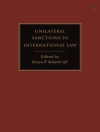Et YIL 2019 comes out while the world is in the midst of a new coronavirus pandemic that has infected millions and killed thousands of people without distinction as to age, race, colour, or creed. As an attack on all humanity, Covid-19, the disease caused by the coronavirus, has challenged the fitness of the global order as never before, and its institutional and normative frameworks have been found wanting. As is often the case in such circumstances, when the WHO is denied resources to assist those countries or the WTO is unable to guarantee access to Covid-19 medical supplies and protective equipment, it is the poorest nations that suffer the most. Et YIL’s mission is to provide a platform for purpose-oriented scholarly analysis and debate on issues of particular significance for African countries such as Covid-19, disputes over Nile water resources, and Ethiopia-Eritrea relations. Although the pandemic came too late for this issue of Et YIL, we have managed to include two important articles that examine the subject from geostrategic and legal perspectives. Et YIL 2019 also addresses a number of other topical issues, including the responsibility of the UN Security Council (UNSC) in climate-related risks to least developed countries, the Global South’s approach to environmental protection, the challenges of international regulation of arms brokering, and the contributions of Martin Luther King, Jr. to Pan-Africanism and international human rights law. Finally, the Yearbook also continues its coverage of regional issues such as the evolving Ethiopia-Eritrea relations, Djibouti’s accession to the ICSID Convention; the trilateral negotiations between Ethiopia, Sudan and Egypt over the Grand Ethiopian Renaissance Dam and the U.S. meddling and the role of the UNSC on the issue have also been covered. As before, our contributors come from all over the world, to all of whom we extend our sincere appreciations.
قائمة المحتويات
Part I
–
Introduction: Towards a Global Order based on Principles of Fairness, Solidarity, and Humanity
by Zeray Yihdego, Melaku Desta, Martha Belete Hailu.-
Part II
– Articles: Rules-Based International Cooperation During a Global Pandemic: the Covid-19 Crisis and Trade Law Lessons for Africa
by Melaku Geboye Desta.- Africa, COVID-19, and International Law: From Hegemonic Priority to the Geopolitical Periphery?
by David P. Fidler.- The Right to Cross-border Identity of Individuals with Eritrean and Ethiopian Ancestry: International and Comparative Law Perspectives
by Daniel Mekonnen.- Ethiopia and Eritrea: A New Relationship Based upon Treaty Obligations, International Law and Mutual Trust
by Don Picard and Zeray Yihdego.- The 2000 Algiers Agreement and the 2018 Asmara/Jeddah Peace Agreements between Eritrea and Ethiopia: Continuity or a New Beginning?
by Senai W. Andemariam and Isaias T. Berhe.- A Drop in the Bab el-Mandeb Strait: Djibouti Signs the ICSID Convention
by Olaoye Kehinde Folake.- Beloved Pan-Africanism: Martin Luther King’s Stride Toward Africa, International Human Rights and The Black International Tradition
by Jeremy I. Levitt.- Africa and the Regulation of Transnational Arms Brokering: Challenges to Implement International Standards
by Brian Wood and Peter Danssaert.- The Responsibility of the UN Security Council for Climate Security
by Shirley V. Scott and Christopher Kaindi.-
Part III – Book Review: Philippe Cullet and Sujith Koonan (eds.): Research Handbook on Law, Environment, and the Global South
by Daria Shapovalova.-
Part IV
– Commentary: Trilateral Negotiations over a Dam on the Blue Nile: U.S. Meddling and the ‘Role’ of the UN Security Council
by Zeray Yihdego.- Documents reprinted: Three Statements and Three letters and Executive Summary of Egypt, Ethiopia and Sudan.
عن المؤلف
Dr. Zeray Yihdego is a Professor and Chair holder in Public International Law at the Aberdeen Law School, UK. He studied for an LLM. and a Ph D. at Cambridge and Durham Universities respectively. He is a Co-director of the Aberdeen Centre for Constitutional and Public International Law, and widely published in international humanitarian, peace and security, arms trade, investment and shared watercourses laws relating to (the Horn of) Africa. Zeray serves as a member of the UN Group of Experts on the regulation of firearms, and collaborate on major multidisciplinary EU and UK funded research projects.
Dr Melaku Geboye Desta is professor of international economic law at the Leicester De Montfort Law School in England, from where he is currently on leave working for the United Nations Economic Commission for Africa (UNECA) as Principal Regional Advisor on regional integration and trade. A native of Ethiopia, Melaku is a lawyer by training and holds a Ph D degree specializing in international economic law. Melaku has published widely in the fields of international and African economic law and policy in general and agriculture and natural resources in particular. Melaku has consulted for a number of international organisations and national governments and served as arbitrator in international disputes
Martha Belete Hailu is an Assistant Professor of Law at the Addis Ababa University, School of Law. She researches and writes on African regional Integration, Ethiopia’s investment treaties and laws and Ethiopia’s accession to WTO.












